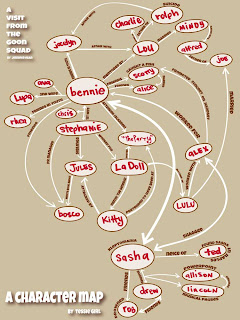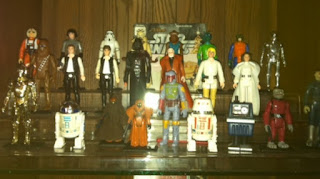Sci Fi Folks Sit In The Back Of The Bus Only
Here's an interesting story courtesy of Bookslut, wherein a not so pretigious publisher wipes its feet on writers and readers of of science-fiction and then gets shown up in a crafty way. It goes to show you the extent of classism in literature. Yes, a lot of sci-fi/fantasy does not concern itself with the real world or real issues, but then of course, that's the point. I personally have no interest in fiction of any kind where characters are cardboard and there is no story or journey for them to go on, but most fiction today, including a lot of literary fiction, does not concern itself with story. With character. That's what matters to me most, and it doesn't matter to me if Bob or Jane are having the crisis of their lives in Des Moines or on Mars.
I've written before on the importance of story. It's such an important issue in modern fiction. What purpose does fiction serve if not to tell a story? There's a place for style and alternate forms of narrative, for experiments in form and structure of course, but to treat story (and this isn't 'plot,' there's a difference) as somehow antiquated, and to marginalize the 'genres/ghettos' where story still persists is detrimental. Walter Benjamin in his excellent essay "The Storyteller" lays this out much better than I could ever hope to. He explains how narrative arrived at its present pariah status, and how 'no event any longer comes to us without already being shot through with explanation."
A lot of sci-fi is not well written, but the same is true of lot of books in general. But yet no matter how good it is, it's still just 'sci-fi' or whatever ghetto they throw you in. A person told me once after reading one of my books (which took place in Iowa) "It's good, for sci-fi." That's like saying "He's pretty articulate, for a black guy."
I've written before on the importance of story. It's such an important issue in modern fiction. What purpose does fiction serve if not to tell a story? There's a place for style and alternate forms of narrative, for experiments in form and structure of course, but to treat story (and this isn't 'plot,' there's a difference) as somehow antiquated, and to marginalize the 'genres/ghettos' where story still persists is detrimental. Walter Benjamin in his excellent essay "The Storyteller" lays this out much better than I could ever hope to. He explains how narrative arrived at its present pariah status, and how 'no event any longer comes to us without already being shot through with explanation."
A lot of sci-fi is not well written, but the same is true of lot of books in general. But yet no matter how good it is, it's still just 'sci-fi' or whatever ghetto they throw you in. A person told me once after reading one of my books (which took place in Iowa) "It's good, for sci-fi." That's like saying "He's pretty articulate, for a black guy."


Comments